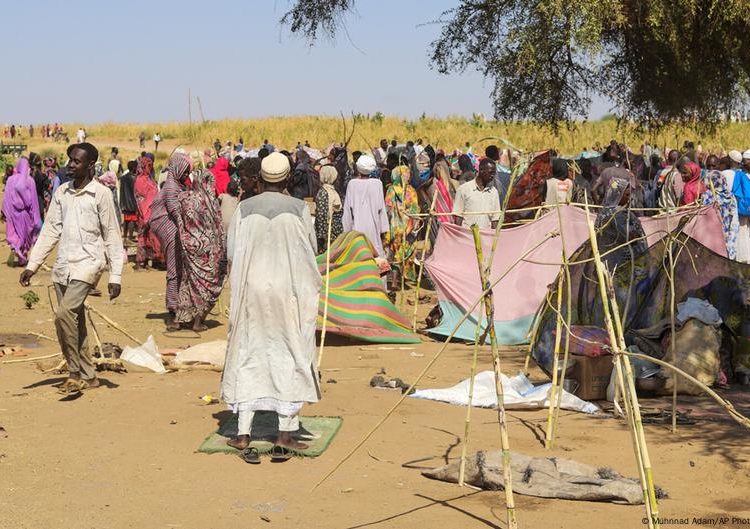Stretching for 5 miles across the Paraná River between Paraguay and Brazil, Itaipu is one of the world’s most powerful hydroelectric dams. In 2016 alone, the binational facility, which has an installed capacity of 14,000 megawatts, produced enough energy to meet Paraguay’s electricity demand for more than seven years. Itaipu is the most expensive single object on Earth, according to Guinness World Records. It is also one of the most controversial—and now the center of a spying scandal that’s bringing up a bitter, decades-old rivalry.
Brazil and Paraguay built the shared dam 50 years ago to defuse a border crisis. But Itaipu’s construction was mired in deep corruption, and the final cost (including subsequent debt repayments) spiraled to more than $63 billion. Paraguayans also have long complained that the 1973 Itaipu Treaty, signed between two military dictatorships, is unfair. Notionally, the dam is a joint project, with the energy it produces split 50/50. Yet for decades, the treaty has obliged the smaller, less industrialized nation of Paraguay (population 6 million) to cede its surplus power to Brazil (210 million) at bargain-basement rates.
In 2023, both countries paid off the last installment of Itaipu’s construction debt, and key terms of the treaty elapsed. Since then, a bilateral renegotiation, conducted behind closed doors, has held out a glimmer of hope that Paraguay could wrest a more competitive price for its hydropower, along with the right to sell it to private energy providers in Brazil. Brazil, meanwhile, has sought to retain access to the cut-price energy that has supplied roughly a fifth of the country’s demand.
The revision of the Itaipu Treaty is of “transcendental” importance for Paraguay, said Mercedes Canese, a former Paraguayan vice minister of mines and energy. “Brazil has harmed Paraguay enormously. This is an opportunity to see what was done wrong, correct it, and make amends.”
Outside players are also taking notice of the renegotiation’s potential dividends. During a U.S. Senate hearing in May, Secretary of State Marco Rubio mentioned the talks, noting that Paraguay’s cheap, abundant power gives it an “enormous opportunity” to become a leader in artificial intelligence, encouraging “smart” investors to establish data centers in the country.
This febrile mixture of geopolitical rivalry, technological competition, and historical grievance burst into the open in late March. Brazilian news outlet UOL revealed that Brazil’s national intelligence agency, ABIN, had infiltrated the communications of some half a dozen Paraguayan officials involved in the Itaipu negotiations.
A statement from Brazil’s Ministry of Foreign Affairs sought to downplay the severity of the hack. It said the digital snooping had begun under former President Jair Bolsonaro, who governed from 2019 to 2023, and was halted once President Luiz Inácio Lula da Silva became aware of it nearly three months after taking office in January 2023. The Lula administration “categorically” denied any involvement in spying and highlighted Brazil’s “close partnership” with Paraguay, including via Mercosur, the South American trade bloc. It also promised a comprehensive investigation into the digital espionage.
Such reassurances weren’t enough for Paraguayan President Santiago Peña, who ordered an inquiry, recalled Paraguay’s ambassador to Brazil for consultations, and summoned Brazil’s representative in Asunción, Paraguay’s capital, to demand an explanation. Paraguayan Foreign Minister Rubén Ramírez Lezcano suspended the Itaipu talks—which had been due to conclude by the end of May—until Brazil offered a full accounting of the “intelligence action ordered against our country,” describing the hack as a “violation of international law, the interference in the internal affairs of one country in another.”
The diplomatic crisis stirs up a deep resentment “in the national imaginary” against Brazil, Paraguayan political scientist Miguel Carter said. This dates back to Paraguay’s 1864-70 war against Argentina, Brazil, and Uruguay, which saw half of Paraguay’s population die by some estimates, mainly from disease and starvation. Interviewed by Argentina’s Radio Mitre in April about the espionage case, Peña invoked the same “war of extermination” and Brazil’s six-year occupation of Paraguay that followed. “Sadly, this episode opens those old wounds,” he added. “As a country, we’re extremely concerned.”
The scandal has continued to simmer as further information about the scale of the clandestine activity has come to light. On June 18, UOL revealed that the spying wasn’t a one-off hack. Rather, it was a long-standing Brazilian surveillance program named Operation Duque and had obtained classified Paraguayan documents—including a key speech by Paraguay’s then-foreign minister shortly before he delivered it in March 2023—and that it continued until June of that year, six months into Lula’s term. The outlet also suggested that at least one Paraguayan diplomatic official had collaborated with the data breach.
Peña and Lula met on the sidelines of a Mercosur summit in Buenos Aires on July 3. The Paraguayan president subsequently posted on social media that they had a “frank and productive discussion.” He said they had discussed the Itaipu renegotiations and the need for a “fair and balanced deal,” adding that he had expressed his “concern over the espionage case” and repeated Paraguay’s demand for an explanation in the interests of “respect and dialogue.”
The blow-up has come at a sensitive moment for Mercosur, which is polarized between leftist governments in Bolivia and Brazil, the radical libertarianism of Argentine President Javier Milei, and Peña’s deepening social conservatism. Relations between the Lula and Peña administrations had already been plunged into the deep freeze earlier in March, before the first UOL investigation was published, when five progressive governments—including Brazil, Bolivia, and Uruguay—abruptly withdrew their support for Lezcano’s bid to become the next secretary general of the Organization of American States. In a further sign of widening ideological divisions, one ABIN official even accused the CIA of seeking to stir up Paraguayan public opinion against Brazil.
“If the falling out between the two countries grows and deepens, it could affect cooperation on other issues,” Argentine Paraguayan foreign-policy analyst Julieta Heduvan said, citing joint efforts to tackle narcotrafficking. The impasse over Itaipu-related espionage will also make it harder to present a united front against U.S. President Donald Trump, who has imposed a 10 percent levy on most South American countries, including those in Mercosur. Meanwhile, Paraguay’s ambassador has yet to return to Brasília. “It’s a serious moment when an allied country, negotiating an important bilateral issue, uses a [surveillance] tool like this,” Heduvan said. “There’s a very clear victim and perpetrator.”
Yet while Brazil benefits from prolonging the uneven status quo, time is working against Paraguay. Although nearly 100 percent of the country’s electricity demand is supplied by hydropower, industry bodies now forecast that Paraguay’s leftover energy will be entirely accounted for within the next few years. In 2024, the country used more than 30 percent of the dam’s total energy, a sharp jump from 20 percent in previous years. Climate change is sapping water levels in the Paraná River, which drives Itaipu’s 20 turbines, and demand for air conditioning in Paraguay is spiking as the temperatures climb toward 100 degrees Fahrenheit in the summer. Energy-intensive industries, including cryptocurrency mining, are also consuming a greater share of the country’s electricity.
The Peña administration is scrambling to explore additional energy sources, including nuclear, solar, and smaller hydroelectric dams. “Today, we have a powerful weapon in the negotiations: our electricity surplus. Tomorrow, we won’t,” said Canese, the former minister. “We should demand market prices or refuse to sell it to Brazil.”
Paraguay’s ability to stand on principle is also limited. In addition to being South America’s premier diplomatic player and military hegemon, Brazil is the top destination for Paraguay’s exports (mainly beef, soybeans, and energy) and its primary source of foreign investment. “The problem with the relationship between Brazil and Paraguay is the asymmetry between the two,” Heduvan said. “Paraguay always plays with the board tilted against it.”
But Heduvan sees some upside for the underdog: The spying scandal has generated international sympathy for Paraguay. Brazilian diplomats interpreted the public intervention by Rubio—who met with Peña in January—as the Trump administration putting its thumb on the scales in favor of Paraguay. The country is a long-standing U.S. ally in South America, a staunch supporter of Israel, and the continent’s last remaining country to recognize Taiwan. In the final year of the Biden administration, Peña and senior figures in his party “took a gamble in strengthening relations with the U.S. Republican Party,” said Heduvan, including by inviting Rubio, then a senator, to visit Asunción last February. “The bet paid off.”
Nor has Paraguay entirely squandered its hydroelectric bounty, Carter said. Furnishing Itaipu with additional turbines, or refurbishing the 50-year-old machinery with new technology, could add another 4,000 megawatts in installed capacity, generating revenue from energy exports for years to come. Carter also thinks talks over the future of the dam, when they resume, should be widened to include compensation for dubious revisions to the Itaipu debt in the 1990s and early 2000s that the two countries agreed to after a financial crisis in Brazil limited its ability to pay its share. These added to the overall cost of the project by tens of billions of dollars—money that Paraguay could have otherwise invested in hospitals, roads, and schools.
Indigenous communities in Paraguay are also calling for redress. Nearly 700 Guaraní families were displaced by the dam’s floodwaters—which also submerged the Saltos del Guairá, an immense chain of waterfalls. Paraguay is entitled to ask for “some kind of reparations” from Brazil, said Carter, the editor of a forthcoming volume analyzing the dam’s murky history. “There’s a real reckoning that needs to be done.”
The post The Dam That Sparked a South American Spying Scandal appeared first on Foreign Policy.




